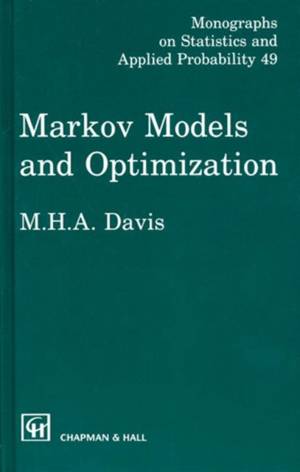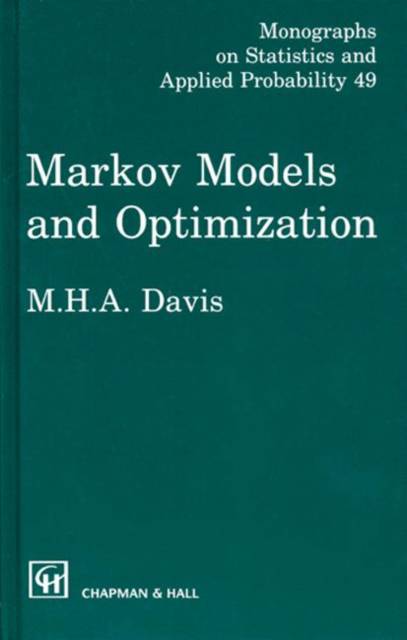
- Retrait gratuit dans votre magasin Club
- 7.000.000 titres dans notre catalogue
- Payer en toute sécurité
- Toujours un magasin près de chez vous
- Retrait gratuit dans votre magasin Club
- 7.000.0000 titres dans notre catalogue
- Payer en toute sécurité
- Toujours un magasin près de chez vous
Description
This book presents a radically new approach to problems of evaluating and optimizing the performance of continuous-time stochastic systems. This approach is based on the use of a family of Markov processes called Piecewise-Deterministic Processes (PDPs) as a general class of stochastic system models. A PDP is a Markov process that follows deterministic trajectories between random jumps, the latter occurring either spontaneously, in a Poisson-like fashion, or when the process hits the boundary of its state space. This formulation includes an enormous variety of applied problems in engineering, operations research, management science and economics as special cases; examples include queueing systems, stochastic scheduling, inventory control, resource allocation problems, optimal planning of production or exploitation of renewable or non-renewable resources, insurance analysis, fault detection in process systems, and tracking of maneuvering targets, among many others. The first part of the book shows how these applications lead to the PDP as a system model, and the main properties of PDPs are derived. There is particular emphasis on the so-called extended generator of the process, which gives a general method for calculating expectations and distributions of system performance functions. The second half of the book is devoted to control theory for PDPs, with a view to controlling PDP models for optimal performance: characterizations are obtained of optimal strategies both for continuously-acting controllers and for control by intervention (impulse control). Throughout the book, modern methods of stochastic analysis are used, but all the necessary theory is developed from scratch and presented in a self-contained way. The book will be useful to engineers and scientists in the application areas as well as to mathematicians interested in applications of stochastic analysis.
Spécifications
Parties prenantes
- Auteur(s) :
- Editeur:
Contenu
- Nombre de pages :
- 316
- Langue:
- Anglais
- Collection :
- Tome:
- n° 49
Caractéristiques
- EAN:
- 9780412314100
- Date de parution :
- 01-08-93
- Format:
- Livre relié
- Format numérique:
- Genaaid
- Dimensions :
- 135 mm x 229 mm
- Poids :
- 458 g

Les avis
Nous publions uniquement les avis qui respectent les conditions requises. Consultez nos conditions pour les avis.






